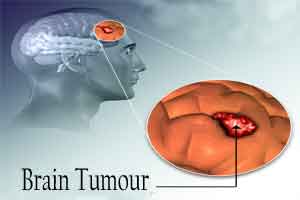- Home
- Editorial
- News
- Practice Guidelines
- Anesthesiology Guidelines
- Cancer Guidelines
- Cardiac Sciences Guidelines
- Critical Care Guidelines
- Dentistry Guidelines
- Dermatology Guidelines
- Diabetes and Endo Guidelines
- Diagnostics Guidelines
- ENT Guidelines
- Featured Practice Guidelines
- Gastroenterology Guidelines
- Geriatrics Guidelines
- Medicine Guidelines
- Nephrology Guidelines
- Neurosciences Guidelines
- Obs and Gynae Guidelines
- Ophthalmology Guidelines
- Orthopaedics Guidelines
- Paediatrics Guidelines
- Psychiatry Guidelines
- Pulmonology Guidelines
- Radiology Guidelines
- Surgery Guidelines
- Urology Guidelines
Protein that promotes brain tumour formation identified

Researchers have found that a protein involved in the breakdown of glucose - a process known as glycolysis -- plays an important role in coordinating cellular processes crucial to cancer metabolism and brain tumour formation.
The findings may lay the groundwork for improved approaches to diagnosis and treatment of glioblastoma and other cancers.
The study showed that PGK1, which is associated with cancer cell proliferation and drug resistance, was instrumental in glycolysis and the citric acid cycle -- both important for generating the energy that feeds cancer cells.
"Our study highlights that PGK1 acts as a protein kinase in coordinating glycolysis and the citric acid cycle in cancer metabolism and tumour formation," said Zhimin Lu, professor at The University of Texas MD Anderson Cancer Centre in the US.
The findings may lay the groundwork for improved approaches to diagnosis and treatment of glioblastoma and other cancers.
The study showed that PGK1, which is associated with cancer cell proliferation and drug resistance, was instrumental in glycolysis and the citric acid cycle -- both important for generating the energy that feeds cancer cells.
"Our study highlights that PGK1 acts as a protein kinase in coordinating glycolysis and the citric acid cycle in cancer metabolism and tumour formation," said Zhimin Lu, professor at The University of Texas MD Anderson Cancer Centre in the US.
The study, published online in the journal Molecular Cell, also shed further light on the Warburg effect, an enzymatic mechanism that cancer cells employ to boost energy levels and produce cellular substances that lead to rapid cancer growth.
"The Warburg effect promotes tumour progression. Exactly how this is coordinated has remained elusive," Lu noted.
"Our findings provided critical insight into the Warburg effect and demonstrates that PGK1 ultimately promotes cancer cell proliferation and tumour formation," he said.
"It may help us to develop a molecular basis for improved diagnosis and treatment of cancer," Lu pointed out.
Next Story
NO DATA FOUND

Disclaimer: This site is primarily intended for healthcare professionals. Any content/information on this website does not replace the advice of medical and/or health professionals and should not be construed as medical/diagnostic advice/endorsement or prescription. Use of this site is subject to our terms of use, privacy policy, advertisement policy. © 2020 Minerva Medical Treatment Pvt Ltd